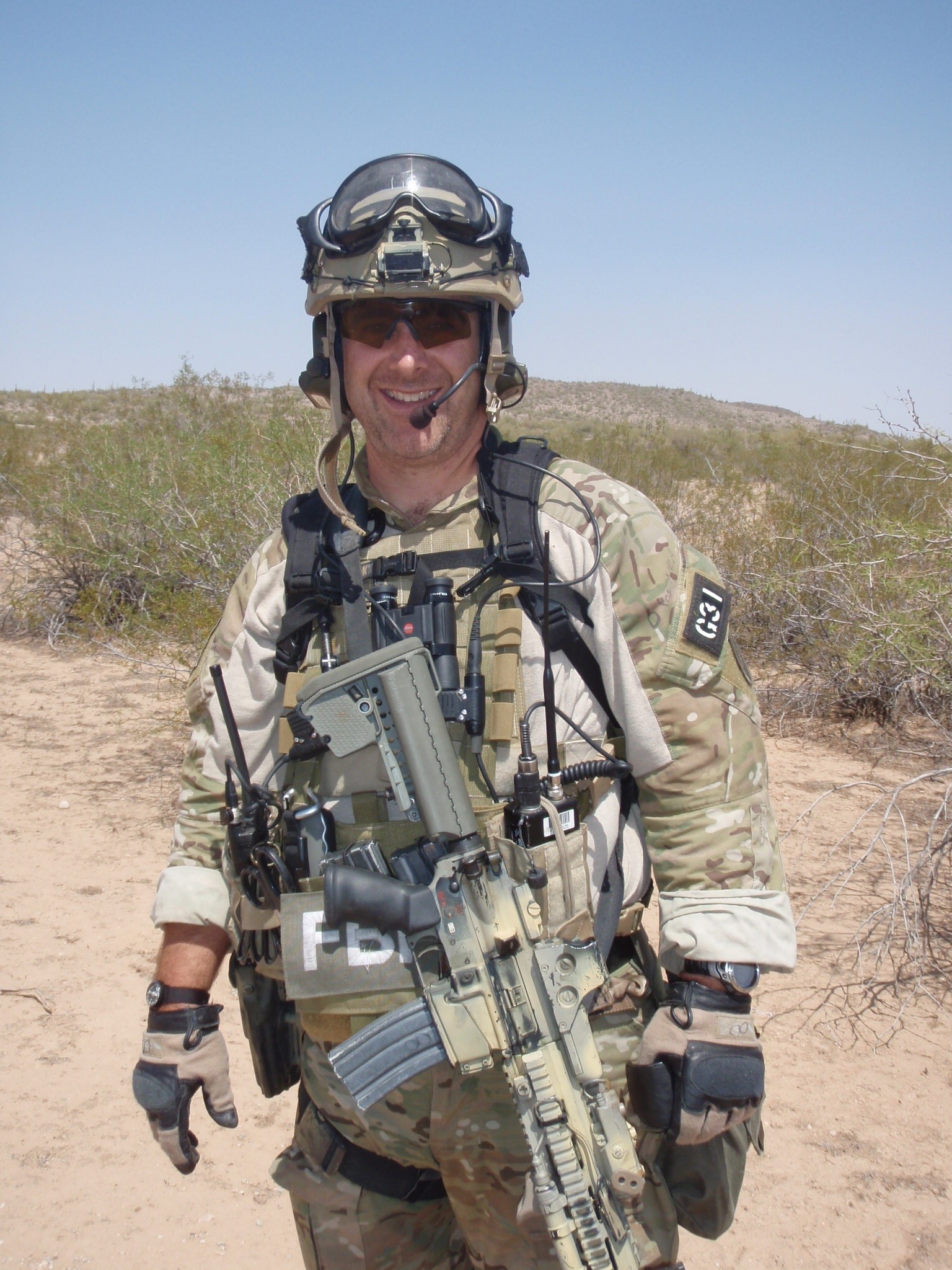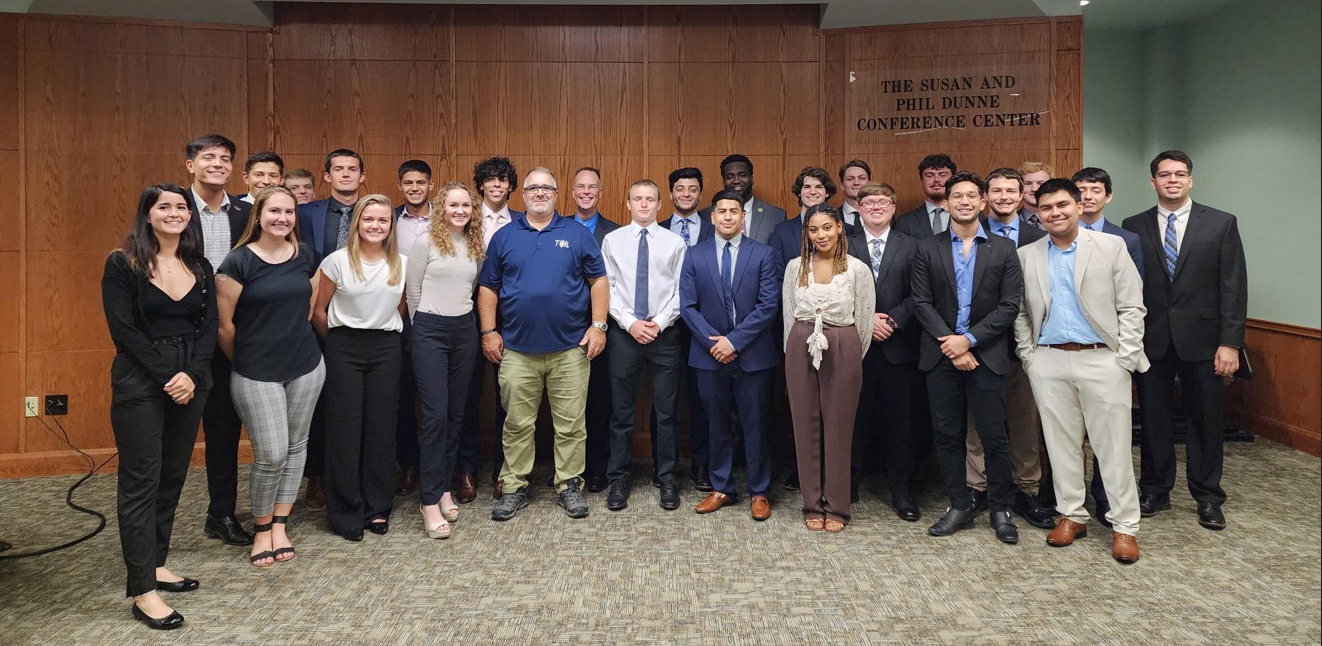How The Hostage Rescue Team Makes Decisions

Sean Cox, retired Supervisory Special Agent, FBI SWAT Operations Unit and Hostage Rescue Team
Sean Cox was my classmate at Texas Lutheran University. He was a fun guy who epitomized high energy and high impact. Out of college, he couldn’t sit in a cubicle. Instead, Cox joined the Maryland State Police. That led to the SWAT team and ultimately an opportunity with the FBI.
There are about 11,000 people at the FBI. Most analyze reams of data. Cox, took a different path. He became the Supervisory Special Agent for the Hostage Rescue Team (HRT).
This elite squad of 250 operators stands ready to fly anywhere in the world, helping people most in need. Throughout Cox’s 22-year career with the FBI, more than four years of training and missions were spent embedded with the Department of Defense Special Missions Unit. This entailed more than 40 countries and five active war zones. During that time, Cox was involved with some of the most high-profile rescues and operations.
Over homecoming weekend, Cox returned to his alma mater to lecture my students.

Given the state of financial, political and world affairs, there has rarely been a better time to learn how to make intelligent decisions in the face of crisis and stress.
Cox began by discussing five mental skills that apply to anyone seeking to improve.
- Initiative, Discipline and Training. You must be a self-starter who is constantly looking to improve.
- Perseverance. You can’t buckle the first time you get punched in the nose. You must have grit.
- Compatibility, Leadership and Maturity. We all work in teams and must get along. You must step forward and know how and when to do the right thing. Leadership is an action, not a phrase. This comes from experience.
- Judgement and Composure. The harder the circumstances, the better your judgement and wisdom must be. The higher the stress level, the more calm, composed and mature you must be.
- Loyalty. Teams cannot build operational leverage unless they work together. Teammates must have loyalty and trust to take care of the job and each other.
As Cox expanded, he offered the following points for success in life:
- Find your passion. If you are passionate, it is not work. Do what you love.
- Have a plan and ensure everyone on the team knows the plan.
- Be the good guy. We all exist to help others.
- Map out all responsibilities and cross-train your team. Everyone should be able to replace a teammate in each other’s roles.
- Have back up plans and discuss contingencies of every kind. Cox added the HRT once planned an operation with 27 variations to contemplate every contingency.
- Rehearse plans repeatedly. Your body and mind must have muscle memory of what is going to happen.
- Know and visualize the desired results in every training mission.
- Be prepared to pivot to any back up plan. Unexpected things happen and you must be flexible.
- When someone’s life depends on success, win at all costs. The HRT was the last resort. Make sure you are ready to stand and successfully finish.
- Avoid I.K.E., the I Know Everything person. Be willing to learn and adapt and gather new information.
- Bad stuff will happen. You cannot dwell on it. Compartmentalize bad things and focus on the task in front of you. Take four deep breaths to reset and re-center.
- Do stress inoculation. Stack the odds in your favor by repeatedly planning and training. Have the right systems and backups in place. Put yourself under stress while preparing for the worst-case-scenario. This helps you to be functional and efficient while being uncomfortable.
- Have mental and physical perseverance. You cannot quit halfway through. People depend upon you.
- Use active listening in all negotiations. If you keep the other side talking, they are offering information. Everyone is in sales. Use these skills every day. When trying to arrest the 6’7” guy who weighs 300 pounds, it is much easier to convince them the best thing is to work with you, not against you. Convince others your idea is in their best interest. People are always self-interested.
- How do strong bosses lead? Be no-nonsense. Let everyone on the team contribute. Then the leader must make decisions and own the decision. You cannot be a politician. People get hurt when bureaucratic decisions are made.
